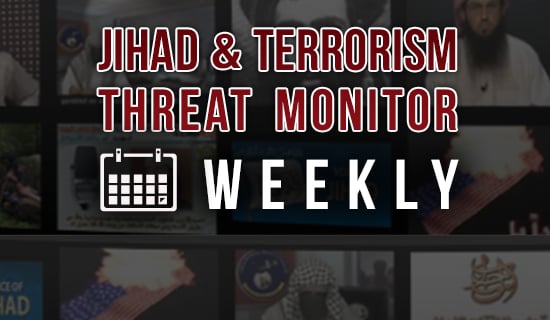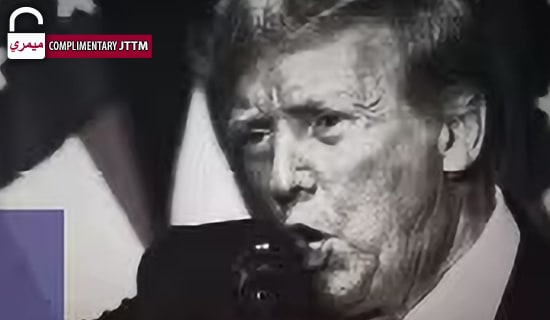On November 24, 2022, a fire broke out in a residential building in the southern part of Urumqi, the capital of the Xinjiang Province, China, which had been locked down for three and a half months due to the CCP's "Zero-COVID" policy. Due to the quarantine measures, firefighting and rescue teams could not reach the residential highrise, resulting in 10 deaths according to official reports; unofficial reports have put the death toll at many more. The incident also drew media attention due to the relatively large number of Uyghur residents in the district.
Within several days, demonstrations spread throughout China, including to universities, with participants holding up blank pieces of paper symbolizing government censorship. The "White Paper" movement quickly became the largest protest movement since the 1989 Tiananmen Square protestors. Demonstrators even chanted "Xi Jinping, step down!" "Communist Party, step down!" and "Liberty or death!"

The White Paper Protests. See MEMRI TV Clip No. 9965.
As the protests intensified, many feared that a government crackdown like the one against the 1989 Tiananmen Square events was imminent. However, in a rare concession, Xi Jinping's government quickly eased tensions and significantly loosened COVID-related restrictions.
Why did Xi Jinping, who is not known for tolerating opposition, make the surprising decision to accede to the protestors' demands?
Reason 1: Domestic Instability Would Endanger Xi's Top-Priority Goal Of Conquering Taiwan
Xi's highest priority during his upcoming term as China's leader is to reunify Taiwan with mainland China. If he wants to achieve this, he cannot allow the situation at home to become so unstable that it would threaten his leadership and the status of the CCP.
On top of the anti-lockdown protests, China has also been facing terrible economic challenges since the outbreak of the pandemic. Throughout the country, enterprises have run up huge debts, and almost all industries have been impacted by the depression and by supply chain disruptions. Meanwhile, the rest of the world is well on the path to economic recovery.
Xi is too much of a pragmatist to risk his top political priority by defying the public's outcry about the COVID measures, particularly considering the circumstances.[1]
Reason 2: Xi Wanted To Avoid A Repeat Of The Tiananmen Square Incident
Xi knows his history. In April 1989, former CCP General Secretary Hu Yaobang, who had been deposed by Deng Xiaoping, suddenly died. Under the legitimate guise of mourning Hu's death, students and citizens gathered in great numbers in Beijing's Tiananmen Square to protest against the growing corruption of Deng Xiaoping's regime and to demand Western-style democracy and freedom. Famously, this led to a bloody confrontation between the CCP and the protestors.
Understanding that this scenario could repeat itself following the November 30 death of former CCP General Secretary Jiang Zemin, Xi may have decided to preemptively diffuse the situation by simply loosening the pandemic restrictions, draining any remaining protestors of their momentum and preventing the White Paper Protests from turning into a White Paper Revolution.[2]
Reason 3: Xi Faces Virtually No Political Opposition – So He Can Accede To Protesters' Demands Without Paying A Political Price Within The Party
Almost symbolically, Jiang Zemin's death also marked the end of any significant political opposition to Xi Jinping within the CCP, particularly after Xi kicked his opponent Hu Jintao out of the closing session of the recent 20th National People's Congress.[3]
With no real opponents in the CCP, Xi had little reason to be worried about damaging his political reputation, and could confidently make a "confession of guilt" without paying a political price within the party or being threatened by opposition forces.
It is noteworthy that on December 6, the day of the state funeral for Jiang Zemin, Xi presided over a meeting of the CCP's Central Committee's Political Bureau that focused on "anti-corruption" work – a warning to any Party members who still dare to challenge Xi's authority that their opposition will not be tolerated.
A Victory For The Protest Movement
Even though the CCP is likely to yet "settle scores" with and take action against protesters, the White Paper Protests can still be considered a success. The spontaneous mass movement made a significant achievement with the loosening of COVID restrictions, and perhaps more importantly, it did not end in bloodshed like the 1989 Tiananmen Square protests did. It is worth paying attention to whether the relatively peaceful end of these protest will have a long-lasting effect on the state of affairs in China.
*Chris King is Senior Research Fellow for the MEMRI Chinese Media Studies Project. King was an active participant in the student protests in China in 1989.
[1] During his December 1 meeting with visiting European Council President Charles Michel, Xi said that the current dominant strain of COVID in China was less lethal than the previous wave’s strain, suggesting that he already believed that it was no longer necessary to continue the strict lockdown policies anyway.
[2] The coincidence between the protests and Jiang Zemin’s death also gave Xi an opportunity to save face by distracting the public from his dramatic concessions. Some sources have even speculated that Xi ordered that Jiang Zemin be deliberately taken off life support for this purpose.
[3] See MEMRI Inquiry and Analysis No. 1664, Outcomes Of The Chinese Communist Party's (CCP) 20th National People's Congress: Xi Jinping Removes Predecessor Hu Jintao From Closing Session; High-Ranking Anti-Xi Officials Demoted, Replaced By Xi Loyalists; Constitution Amended To Stress Opposition To Taiwan Independence, November 1, 2022.








